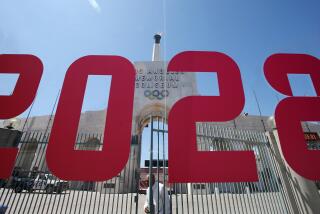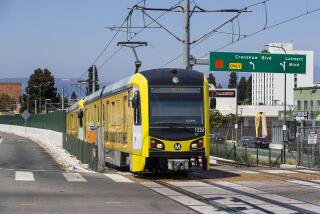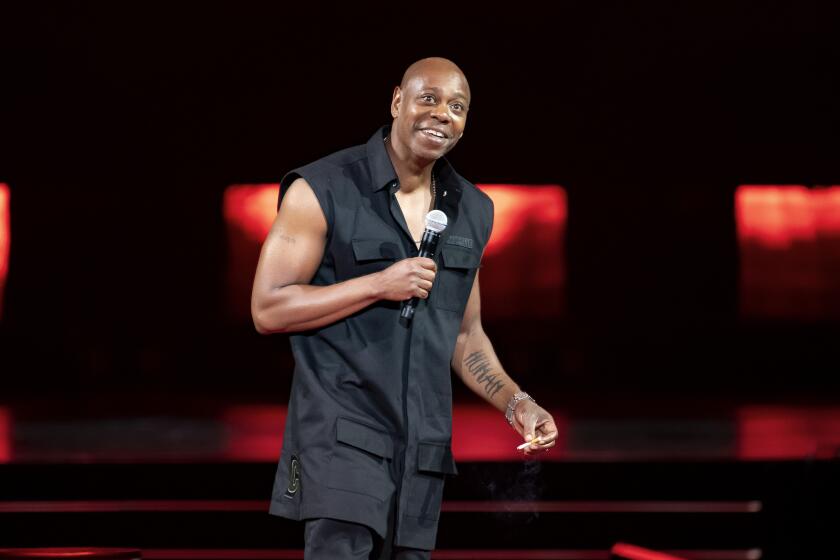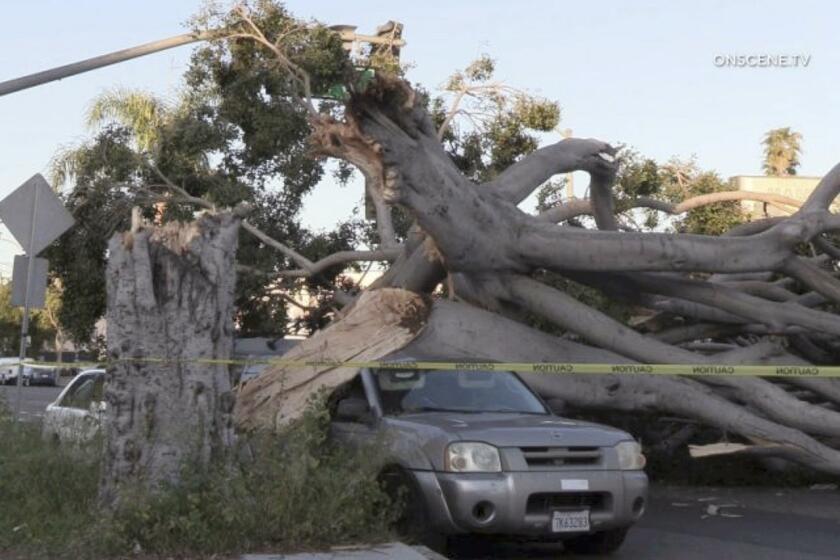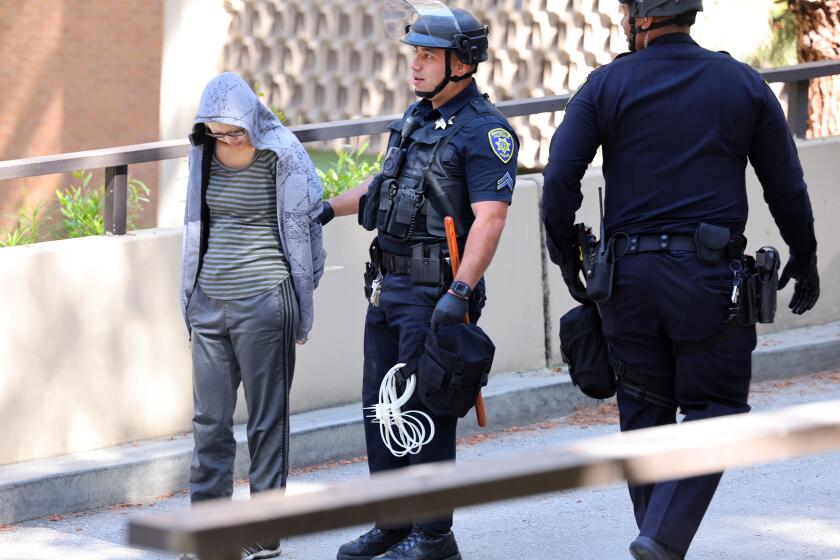Ueberroth Will Direct Rebuilding Task Force : Recovery: Organizer of ’84 Olympics effort demands private, government and ethnic group commitments.
Peter V. Ueberroth, who guided the city through one of its greatest modern triumphs--the 1984 Los Angeles Olympics--has agreed to return to take charge of the city’s efforts to recover, materially and spiritually, from the holocaust of the past week.
Ueberroth announced Saturday, after a helicopter tour of the devastation, that he will accept Mayor Tom Bradley’s invitation to head what the mayor’s office described as an “extra-governmental task force” to rebuild the city. But he said his acceptance of the job was conditional upon receiving commitments of assistance from the private sector, from officials at all levels of government and from leaders of the city’s ethnic communities.
“I am not going to take this job unless I get commitments,” Ueberroth said during an interview Saturday afternoon in Bradley’s office with the mayor sitting beside him.
Ueberroth said that “the most important commitment I can get is from the black, the Asian and the Latino communities, especially in those areas that were predominantly affected. It won’t be a success without them.”
Ueberroth also said he will ask for pledges of support from President Bush as well as from presidential candidates Bill Clinton and Ross Perot.
City leaders were generally enthusiastic about Ueberroth’s role but warned that the massive task will be far more difficult than putting on the Olympics.
“It will help Los Angeles turn the psychological corner,” said Councilman Zev Yaroslavsky. “He’s associated with one of the city’s greatest successes. But this is different. It is going to last longer than 12 days. There’s no profit to be made, and you can’t sell advertising for it.”
Although local government leaders said they welcomed Ueberroth’s assistance, they painted a daunting picture of reviving a city mired in a crippling recession. With the flight of jobs and the middle class from the city likely to be exacerbated by the rioting, Ueberroth will have to act quickly to prevent a hemorrhaging of the local economy, experts warn.
The recovery will have to take place in an economic climate far different from the era of plenty and federal largess that helped cities hit by riots in the 1960s. Gone is the War on Poverty and its wealth of housing, job training, economic development and educational programs. Now there is a $400-billion federal deficit as well as red ink at the state and local levels.
And even with the resources available in the 1960s, it took almost two decades after the Watts riots for a modern shopping center to be built in that community. Last week, every store in that center was looted or vandalized, according to officials of the Community Redevelopment Agency, which owns the facilities.
“The emphasis is going to have to be on self initiative. That’s the watchword. We in government can’t build something for everybody. We just don’t have the money to do it,” said Linda Griego, deputy mayor for economic development.
City officials, already facing a deficit of nearly $183 million, have been able to identify small potential sources of reconstruction funds.
Some expect the cost of recovery to exceed $1 billion once the price tag for lost merchandise and jobs is added to the cost of destroyed buildings. Controller Rick Tuttle has identified about $90 million that could be diverted to pay the overtime bill for police, fire and other emergency services, providing the City Council agrees.
The Community Redevelopment Agency has offered $20 million in available funds to help in the rebuilding process.
Ueberroth said that the difference between the rebuilding of Watts and what must take place now is going to be the reliance on financial assistance from the private sector. Ueberroth admitted that he faces “a massive undertaking.”
Ueberroth did not elaborate on what he intended to request from various groups, saying only, “I am going to ask for fairly broad and blanket commitments. I want an assurance that they will do everything in their power to make the effort successful.
“From religious leaders I would ask them to exercise the power to influence people and to exercise the power of prayer. From lending institutions, obviously I would ask for something different.” And from the ethnic communities, he said, “I would ask for their unrelenting efforts to make things better than they were before.”
Ueberroth did not say how much he thought the recovery would cost but he made it clear that help was needed from companies here and abroad.
“One of the things I can assure the global corporate side is that if they make a commitment to providing jobs and assets, it won’t be wasted.”
Ueberroth said the recovery task force will be a nonprofit organization that probably will be formed Monday in order to move quickly to make an impact. He declined to say what kind of action he anticipated taking initially but indicated that creating jobs was a high priority.
“The looters looted jobs,” he said. “The impact was far worse on the jobs than it was on the merchandise.”
Bradley, appearing relaxed and cheerful, said it would be Ueberroth’s task to “pull together the public and private sectors to rebuild the confidence of the city as well as its physical and social structure.”
Deputy Mayor Mark Fabiani said part of Ueberroth’s job would be to “cut through the red tape” that traditionally has tied up commercial development, to “streamline the planning process” so that projects will not bog down in lengthy environmental reviews and “to mobilize the private sector” from which much of the money will have to come for the recovery.
City Council President John Ferraro pledged the full cooperation of the council, but said financial difficulties at all levels of government are bound to handicap the recovery effort.
More to Read
Start your day right
Sign up for Essential California for news, features and recommendations from the L.A. Times and beyond in your inbox six days a week.
You may occasionally receive promotional content from the Los Angeles Times.

